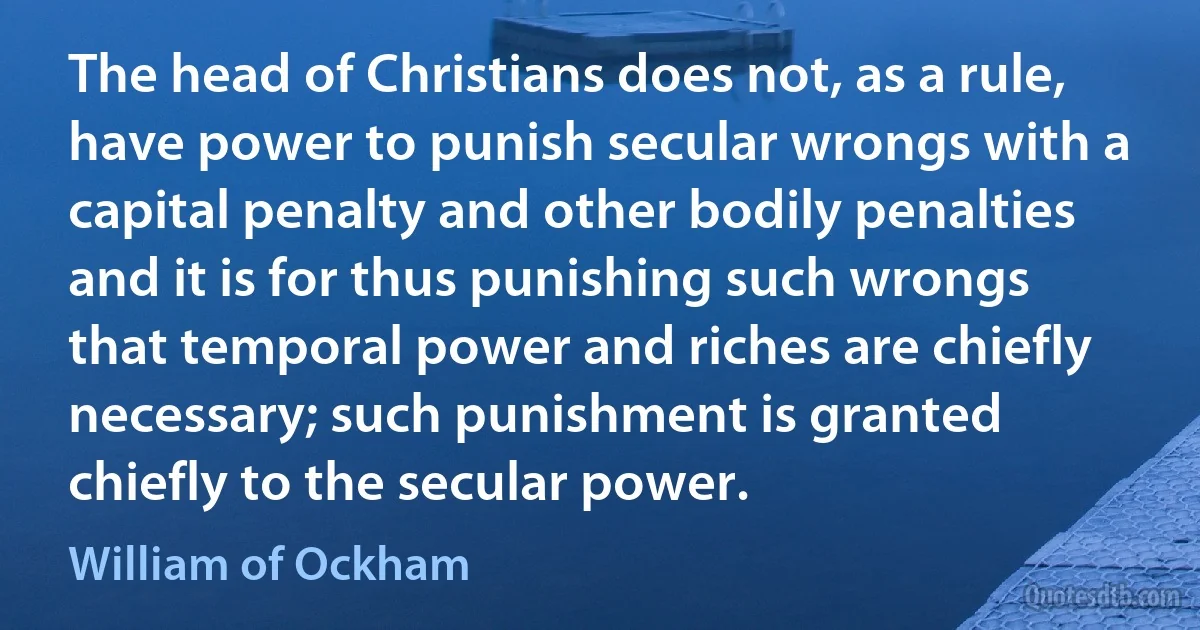William of Ockham quotes
Intuitive cognition is such that when some things are cognized, of which one inheres in the other, or one is spatially distant from the other, or exists in some relation to the other, immediately in virtue of that non-propositional cognition of those things, it is known if the thing inheres or does not inhere, if it is spatially distant or not, and the same for other true contingent propositions, unless that cognition is flawed or there is some impediment.

William of Ockham
The Holy Spirit through blessed John the evangelist makes a terrible threat against those who add anything to or take anything from divine scripture when he says in the last chapter of Revelations [22:18–9], "If any man shall add to these things, God shall add unto him the plagues which are in this book. And if any man shall take away from the words of the book of this prophecy, God shall take his part out of the book of life and out of the holy city, and from these things that are written in this book."

William of Ockham
The head of Christians does not, as a rule, have power to punish secular wrongs with a capital penalty and other bodily penalties and it is for thus punishing such wrongs that temporal power and riches are chiefly necessary; such punishment is granted chiefly to the secular power. The pope therefore, can, as a rule, correct wrongdoers only with a spiritual penalty. It is not, therefore, necessary that he should excel in temporal power or abound in temporal riches, but it is enough that Christians should willingly obey him.

William of Ockham


